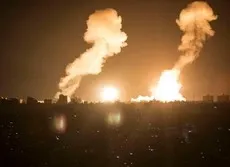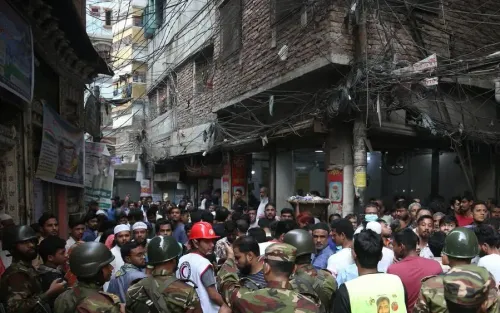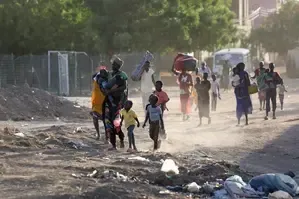Is De-escalation Possible Amid Displacement in Iran and Israel?

Synopsis
Key Takeaways
- UNHCR calls for de-escalation to prevent displacement.
- Iran hosts 3.5 million refugees, mainly from Afghanistan.
- Conflict leads to civilian casualties, with a significant number injured.
- Immediate action is crucial to avert a humanitarian crisis.
- Global attention required to address the ongoing turmoil.
Geneva, June 22 (NationPress) The United Nations Refugee Agency (UNHCR) has called for immediate de-escalation of the ongoing conflicts between Israel and Iran, highlighting that significant displacement has already been reported in both nations due to the escalating violence.
In its announcement on Saturday, UNHCR indicated that people have begun to move from Tehran and various regions of Iran, with some seeking refuge in neighboring countries. Concurrently, the shelling in Israel has compelled individuals to find safety in other areas or even outside the country, as reported by the Xinhua news agency.
Filippo Grandi, the UN High Commissioner for Refugees, stated, "This region has faced more than its fair share of war, loss, and displacement - we must prevent another refugee crisis from developing. The time for de-escalation is now. Once individuals are compelled to flee, their return is not swift - and the repercussions often endure for generations."
According to the agency's Global Trends 2024 Report, Iran accommodates approximately 3.5 million refugees, primarily from Afghanistan, securing its position as the largest refugee-hosting nation worldwide. Prolonged conflict could exacerbate the vulnerabilities faced by these refugee communities.
Additionally, reports indicate that Israeli attacks on Iran over the last nine days have resulted in over 400 Iranian fatalities and left 3,056 individuals wounded, as shared by Hossein Kermanpour, head of the Iranian Health Ministry's public relations, on Saturday.
Among the injured, 2,220 have been treated and discharged from health facilities, while 232 received outpatient treatment at the attack sites, Kermanpour noted on the social media platform X.
According to health officials, most casualties have been civilians, with 54 women and children among those who lost their lives due to the Israeli strikes.









